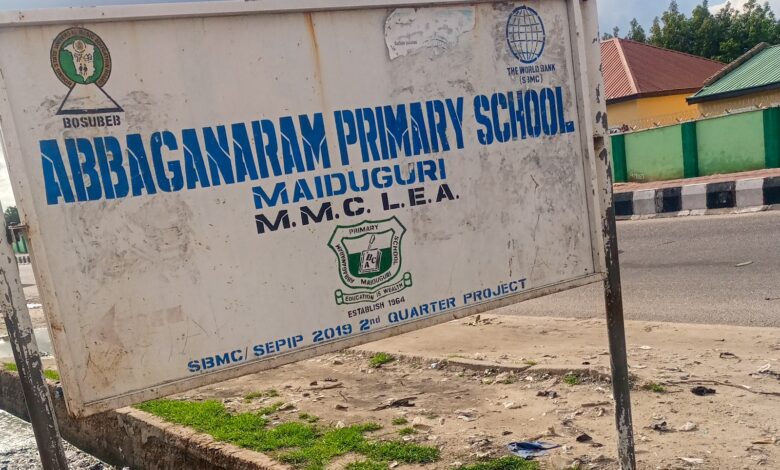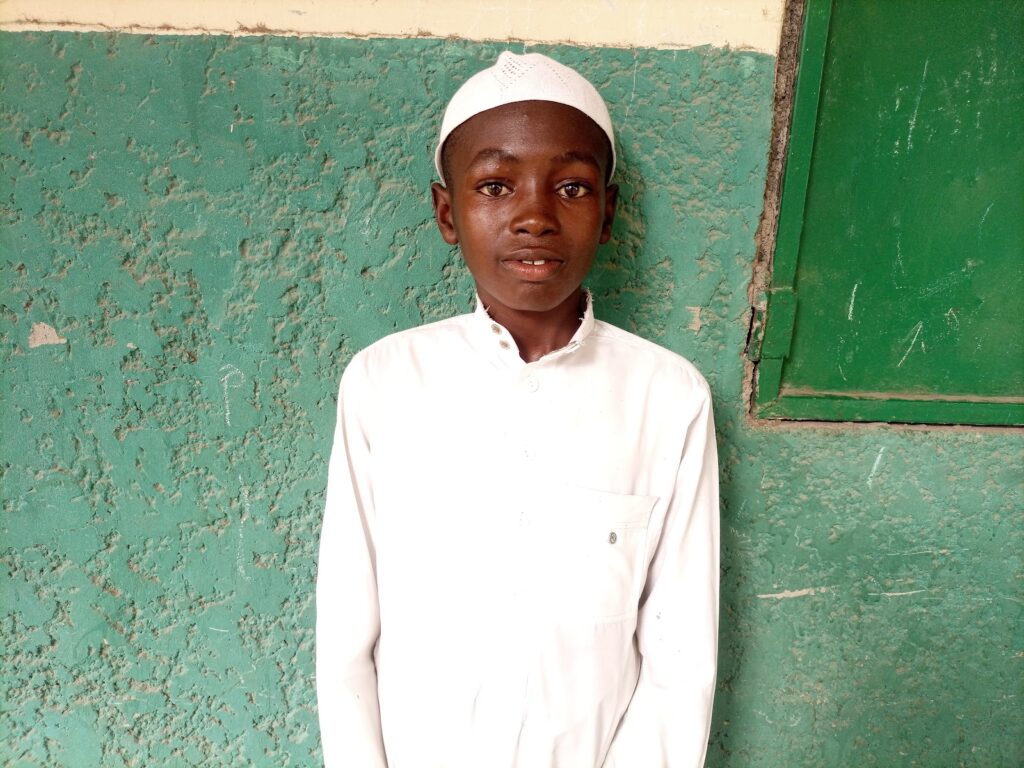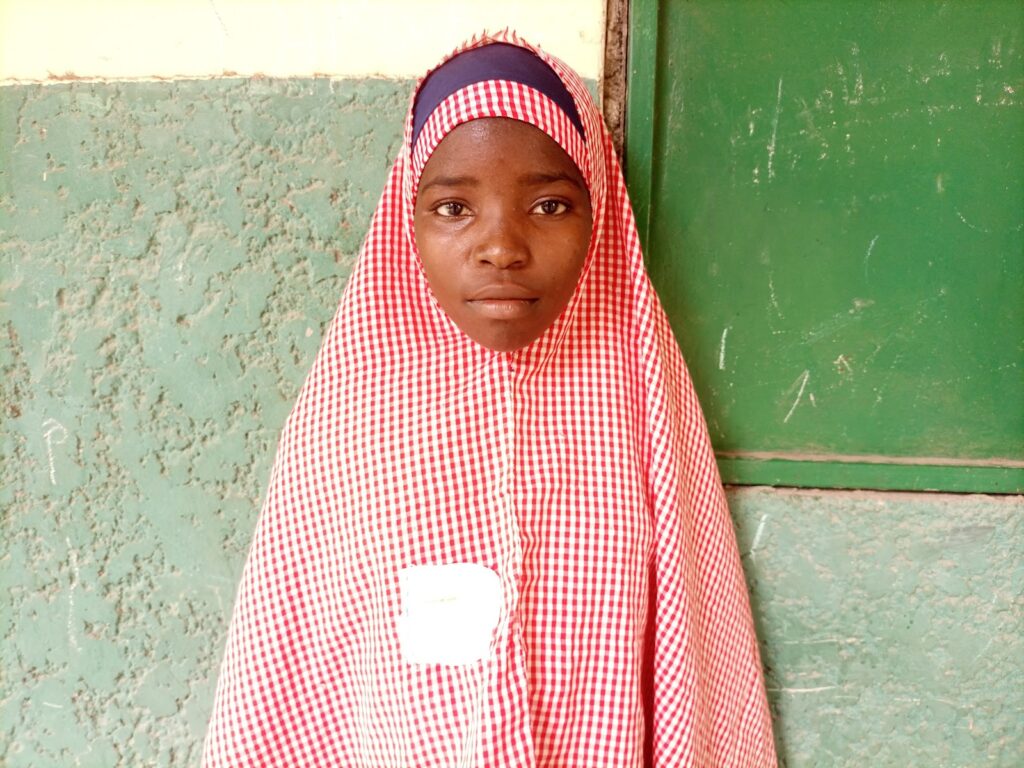Orphans, Vulnerable Children Are Getting A Chance At Education Despite Insurgency
Some of them lost their parents due to the activities of Boko Haram North East Nigeria. Others barely scrape by and have had to drop out. This foundation offers scholarships to some of these children, giving them a chance at education.

One day Muhammad Abba, 16, had a family. The next, he was orphaned. For another year, his life kept losing important parts, including the opportunity to go to school.
In 2013, Boko Haram stormed his home town in Ngomari, Jere Local Government Area (LGA) of Borno State, North East Nigeria.
“They shot my grandfather in the head when he was about to leave for Gombe one sad Sunday,” Muhammad narrated. His grandfather was the chairman of a political party, which made him prone to the attack as members of political parties were often targeted in those days.
It did not end there. “They came back to attack my father and elder brother.” Muhammad’s older brother died a week after while his father, who suffered an injury, followed nine months later.
Since his father died, Muhammad lost hope of going back to school for a year. Then he was selected as one of the beneficiaries of a scholarship scheme spearheaded by Attaqwaa Foundation, a non-profit focused on providing educational support to children like Muhammad.

Rescued
Attaqwaa Foundation paid Muhammad’s school fees and also bought his study materials. “My dream is to become a lawyer. I wish they could help sponsor me through higher institution too,” he said, recognising that when the scholarship ends, his prospects beyond then are much darker.
Borno State, where the Boko Haram insurgent group originated from, has been devastated by their brutal attacks. Thousands have been killed, injured, and kidnapped. The destruction of schools and infrastructure has also created an education crisis, with parents fearing to send their kids to learn.
Muhammad is just one of 30 orphans and school dropouts emerging from Boko Haram’s deadly insurgency in Borno who are benefiting from the Attaqwaa Charity Foundation scholarship scheme. With over 20,000 lives lost and millions displaced, the extremist group has left countless children bereaved and deprived of education.
It is children like Muhammad that the Attaqwaa Foundation seeks to assist. Founded in 2018 by prominent Students of El-kanemi College of Islamic Theology (ELKALITES), the non-profit organisation provides scholarships and incentives for orphaned and vulnerable children in Borno State.
Attaqwaa volunteers comb through displaced persons in remote areas identifying young students who show promise to excel academically by going to the community schools to check their academic records. The organisation is currently sponsoring over 30 orphans and school dropouts aged 10-16 at Abbaganaram Primary School.
For Muhammad, the assistance has been a lifeline. “I lost all hope, not until Attaqwaa Charity Foundation found me,” he said.
Parents speak about the scholarship
Fati is currently fending for her six children, two of whom are beneficiaries of Attaqwaa’s scholarship scheme.
“Life has not been smooth for widowed mothers who have to struggle to fend for their family in these hard times,” she told HumAngle. “We migrated from Bama as a result of the Boko Haram attack on our villages. We lost everything to the attack and were left with nothing. My husband couldn’t continue being idle so he decided to start a business that required him to travel all the time. One day, he got involved in an accident and died.”
Since her husband died, Fati has struggled to survive. Her children could not attend school anymore. Then one day she was notified that two of them would be benefiting from a scholarship. “I was very excited about the news. Now, my children can also attend school,” she said.

Then there is 15-year-old Maryam Abubakar from Maiduguri. She had lost her father after he had an accident. “It rendered him idle for months as a result of swollen legs and hands that later caused his death. I am happy being a beneficiary of this scheme because after the death of my father, I had to stop going to school until I got the scholarship.”
Besides scholarships, the non-profit also supports families with food provisions, sanitary items and basic healthcare needs.
“Looking at the critical situation, financial challenges and security instability, we want to bring hope back to these children after years of suffering and reopen doors to their future as well as help and support the less privileged,” said Muhammad Abbagoni, chairman of the foundation.
During Ramadan, Attaqwaa distributes food items to widows and children impacted by the conflict. “We want to ensure these families don’t feel alone during the holy month. Our goal is to sustain them until they can thrive on their own again.”
During the harmattan season, the foundation also distributes harmattan kits to vulnerable children, mainly targeting the Almajiris. Abbagoni pointed out that beneficiaries are selected randomly after some interviews.
A typical example is Ummi who was in dire need of foodstuff. A widow with children and grandchildren looking up to her, she had rushed to her community’s Imam for help. A few days later, she was given a voucher and asked to go to the mosque to receive food items. “I was really excited. It was enough to sustain us for the remaining days of Ramadan. I will forever be grateful to Attaqwaa for the assistance provided,” she told HumAngle.
“When Boko Haram swept into villages, they left behind so much suffering,” one of the community Imams said. “Attaqwaa’s help gives us the strength to keep moving forward.”
But funding remains a problem for the foundation, the chairman said.
“We have no sponsors and it is quite a challenge for us because the lack of funding is holding back the foundation’s impact. We have projects to execute but we are unable to execute these projects due to limited amounts of money. And most of this money, we generate among ourselves.”
On other revenue-generating attempts, he says they are attempting to crowdfund.
“We share fliers on our social media platforms so that passionate individuals will also contribute their own fraction. If ACF gets more funding, we will expand our programs, such as scholarships to more orphans, empowering youths and widows.”
Halima Bawah is a 2023 HumAngle Accountability Fellow from Borno State.
Summary not available.
Support Our Journalism
There are millions of ordinary people affected by conflict in Africa whose stories are missing in the mainstream media. HumAngle is determined to tell those challenging and under-reported stories, hoping that the people impacted by these conflicts will find the safety and security they deserve.
To ensure that we continue to provide public service coverage, we have a small favour to ask you. We want you to be part of our journalistic endeavour by contributing a token to us.
Your donation will further promote a robust, free, and independent media.
Donate HereStay Closer To The Stories That Matter




